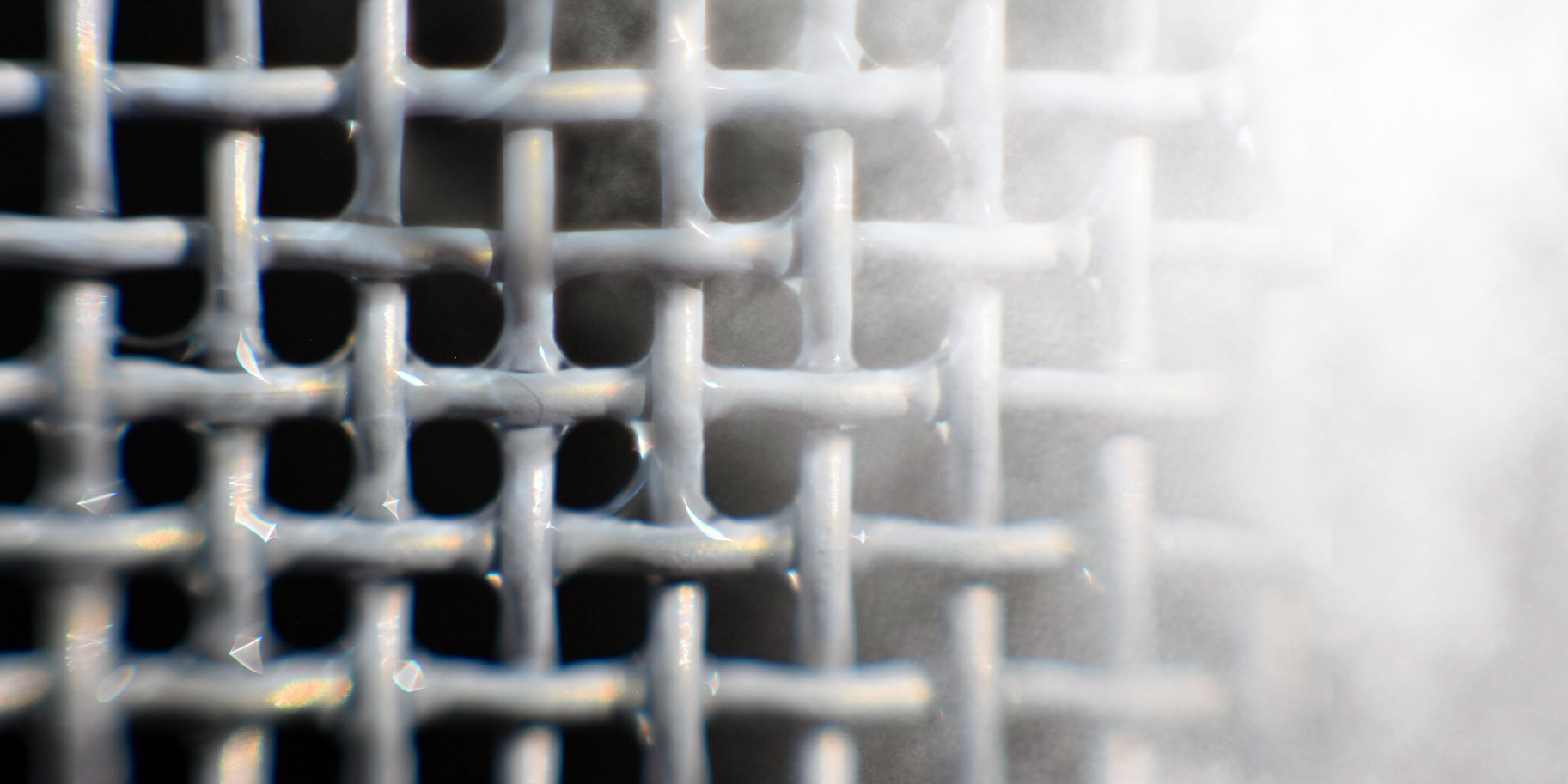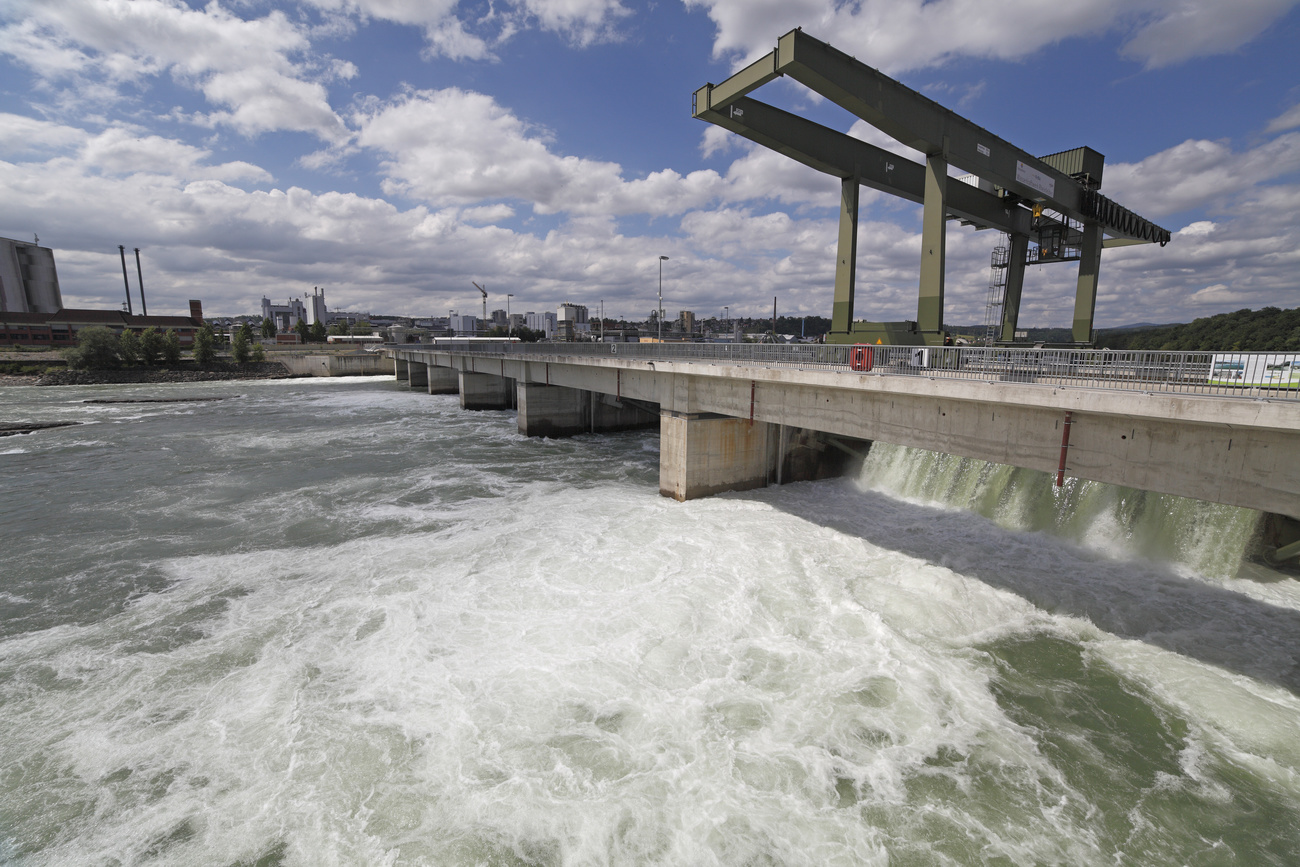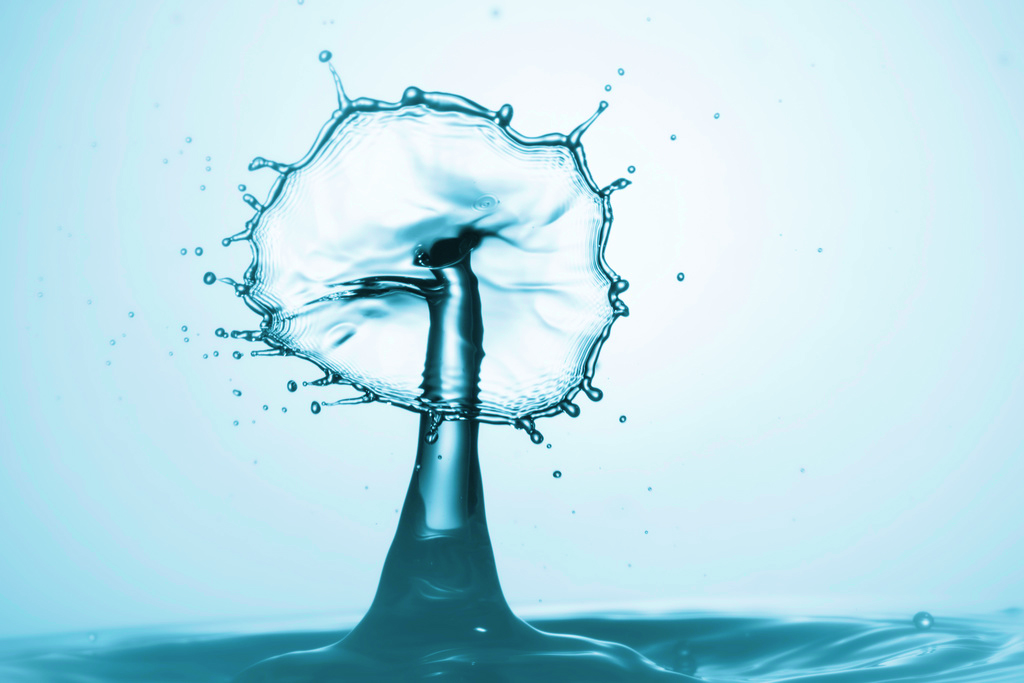
Researchers turn fog into clean water

A specially coated metal mesh can extract water from fog and remove environmental pollutants at the same time. The technology, developed in Zurich, can collect drinking water from the air even in regions with heavy air pollution.
Researchers from the federal technology institute ETH Zurich presented the findings on Thursday in the scientific journal Nature Sustainability.
So-called fog collectors are nothing new in themselves. They are already used in Peru, Bolivia, Chile, Morocco and Oman, ETH Zurich said in a statementExternal link on Thursday.
They work according to a simple principle: fine-meshed nets are hung vertically. When the wind blows through them, small droplets of fog stick to the net. Over time, the droplets grow until they are so heavy that gravity pulls them down. There, the water is collected in a trough. According to the university, up to several hundred litres of water can be obtained in this way in one day with a fog collector that is only a few square metres in size.
“For regions with little rain or spring water, but where fog is a common occurrence, this can be a blessing,” the researchers said.
The problem is that dirt particles in the air are also captured with the water. “In many of the world’s major cities, the air is so polluted that any water harvested from fog isn’t clean enough to be used untreated either for drinking or for cooking,” they said.

More
What Switzerland is doing to prevent disputes over water
Activated with sunlight
Researchers at ETH Zurich therefore developed a method that collects water from fog and simultaneously purifies it.
This uses a close-mesh lattice of metal wire coated with a mixture of specially selected polymers and titanium dioxide. The polymers ensure that droplets of water collect efficiently on the mesh and then trickle down as quickly as possible into a container before they can be blown off by the wind. The titanium dioxide acts as a chemical catalyst, breaking down the molecules of many of the organic pollutants contained in the droplets to render them harmless.
Once installed, the technology needs little or no maintenance. What’s more, no energy is required apart from a small but regular dose of UV to regenerate the catalyst. Half an hour of sunlight is enough to reactivate the titanium oxide for a further 24 hours – thanks to a property known as photocatalytic memory.
Following reactivation with UV, the catalyst also remains active for a lengthy period in the dark. With periods of sunlight often rare in areas prone to fog, this is a very useful quality, the researchers wrote.

More
Water shortage: Switzerland’s blue gold is under pressure

In compliance with the JTI standards
More: SWI swissinfo.ch certified by the Journalism Trust Initiative
































You can find an overview of ongoing debates with our journalists here . Please join us!
If you want to start a conversation about a topic raised in this article or want to report factual errors, email us at english@swissinfo.ch.